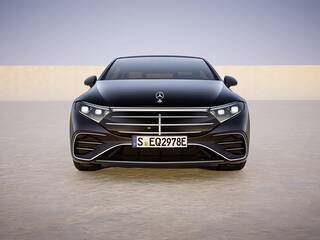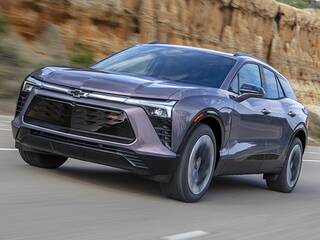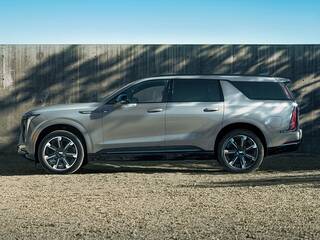The new Nissan Leaf SUV could spell doom for the pricier Nissan Ariya
By converting the Leaf into an SUV, Nissan may have put its other electric SUV out of business.

published Jun 23, 2025
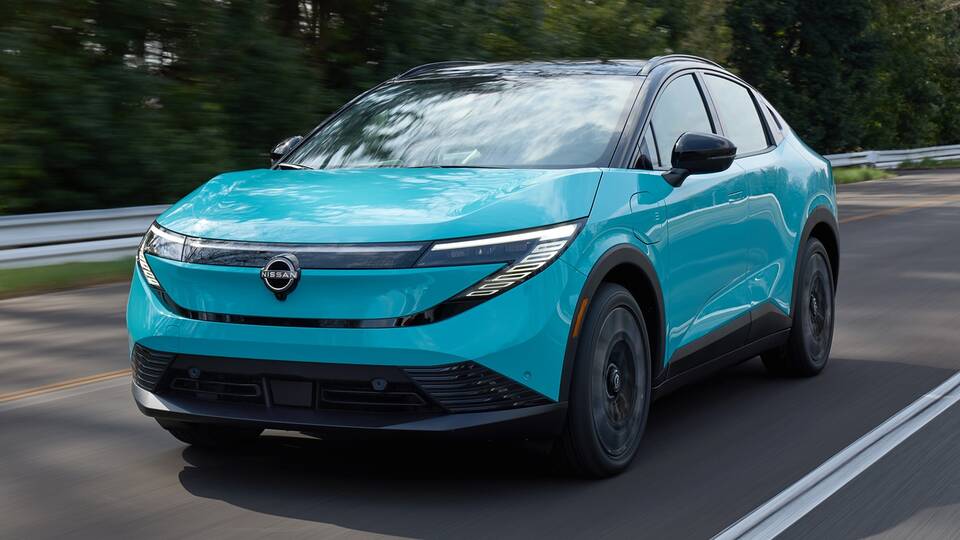
Key Takeaways
- No longer a little hatchback, the redesigned 2026 Nissan Leaf is now a small electric SUV.
- That's probably great news for Leaf sales, but the pricier Nissan Ariya is also a small electric SUV, and it doesn't do much to justify the extra cost.
When the 2026 Nissan Leaf launches later this year, it'll send shockwaves through the subcompact electric SUV segment, which is currently populated by a half-baked Volvo, a pair of so-so Korean cousins and an overpriced, underachieving Mini.
Why shockwaves? Because the new Leaf, having morphed from a hatchback into an SUV, should offer up to 303 miles of range with the larger battery — far and away the most in this class — along with competitive cargo space and reasonable pricing. It looks like the kind of affordable yet desirable EV that many Americans have been waiting for.
Good for the Leaf, then, but where does this leave the compact Ariya, Nissan's other electric SUV? At a glance, the reinvented Leaf has so much overlap with the pricier Ariya, even using the same AmpR Medium platform, that it's hard to see how the latter can compete.
2026 Nissan Leaf Price Estimates
First of all, we don't have official prices for the new Leaf, and that's obviously a crucial factor here. But looking at the current Leaf's pricing as well as that of the Hyundai Kona Electric and Kia Niro EV, which will be its most direct rivals, we can get a pretty good idea of where Nissan will be aiming.
The outgoing 2025 Leaf hatchback starts at $28,140 with the smaller 40-kWh battery (147 horsepower, 149 miles of range), while the Leaf Plus variant with the bigger 60-kWh battery (214 hp, 212 miles of range) starts at $36,190.
The Kona Electric, meanwhile, starts at $32,875 with the smaller 48.6-kWh battery (133 hp, 200 miles of range) and goes up to $36,875 with the bigger 64.8-kWh battery (201 hp, 261 miles of range). The Niro EV comes only with the 64.8-kWh battery (201 hp, 253 miles of range) and starts at $39,600.
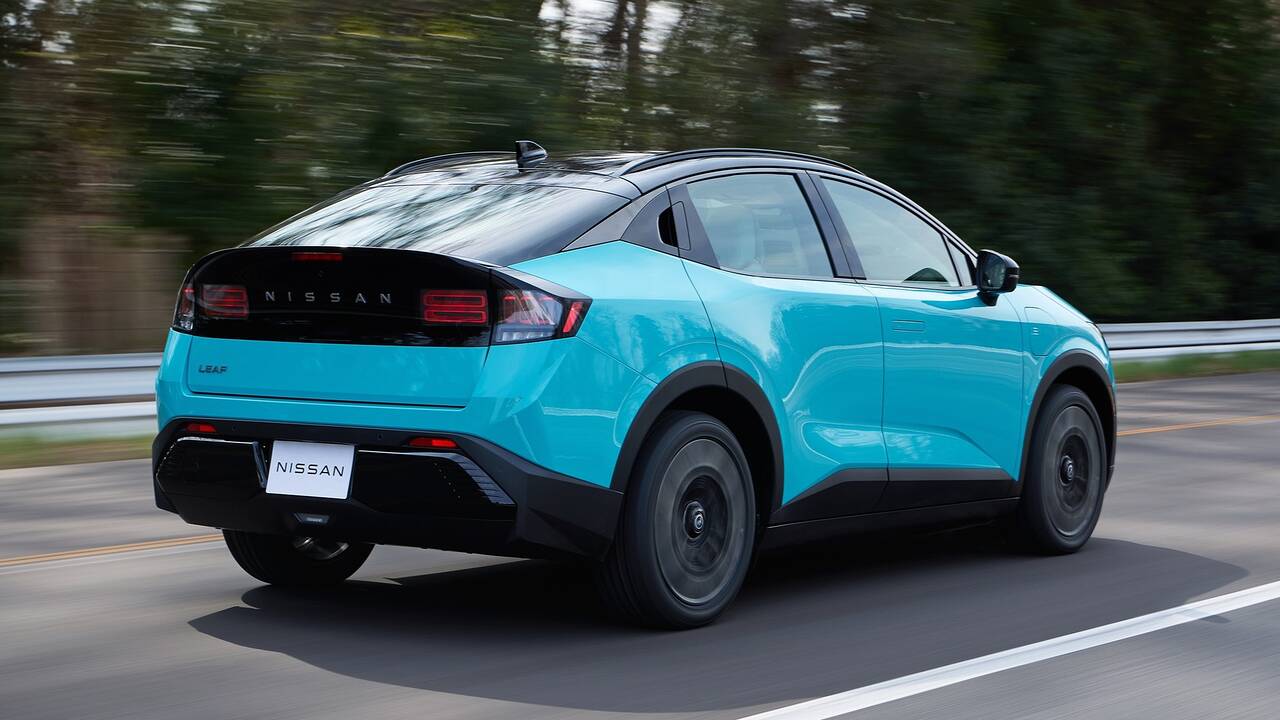
Got all that? So what I'm thinking is, the base 2026 Leaf SUV with its smaller 52-kWh battery (174 hp, 205 estimated miles of range) will probably start around $33,000 to compete with the base Kona Electric. And if Nissan's smart about the star of the show — the 75-kWh version (214 hp, 303 estimated miles of range) — they'll start it around $38,000, splitting the difference between the larger-batteried Koreans and giving shoppers at the $45,000 price point (think Tesla Model Y Long Range RWD) some genuine food for thought.
So let's roll with those numbers for the purposes of this conversation: $33,000 for the 2026 Leaf S, which comes standard with the smaller battery, and $38,000 for the 2026 Leaf S+, which is the cheapest trim that features the bigger battery.
2026 Nissan Leaf vs. Nissan Ariya: By the Numbers
Now back to the matter at hand, which is the question of whether the compact electric Ariya SUV stands a chance once the 2026 Leaf debuts. Specifically, let's look at what the Ariya has that the 2026 Leaf lacks.
For one thing, it has more size: at 182.9 inches stem to stern, it's roughly the size of a Toyota RAV4, whereas the 2026 Leaf is decidedly compact at 173.4 inches long — 3 inches shorter than the outgoing Leaf hatchback, believe it or not.
And if you're wondering why that matters, look no further than rear legroom, where the Ariya whups the 2026 Leaf, 37.0 inches to 31.8 in. How will that shake out in the real world? We'll have to wait until Nissan opens the 2026 Leaf's rear doors and lets us in, but it seems safe to assume that the Ariya will win easily when it comes to carrying folks in the second row.
You might think that the Ariya's extra 9.5 inches of length would result in more cargo space, too, but not really. With 22.8 cubic feet behind the second row and a maximum of 59.7 cubes with the rear seatbacks folded, the Ariya barely beats the 2026 Leaf, which provides 20.0 cu ft and 55.5 cu ft, respectively.
But okay, so rear legroom is a clear win for the Ariya. What else? Ah yes: all-wheel drive, or in the case of the 2026 Leaf, a distinct lack thereof. Like the Leaf hatchback before it, the 2026 Leaf offers a choice of two electric motors, but you can only have one or the other, and it will only drive the front wheels. As for the Ariya, dual-motor all-wheel drive is available with either of the battery packs, and while you don't want to pair it with the smaller pack — because that takes the range down to 205 miles at a base price of $43,770 — you may well want it with the larger pack (272 miles of range, $45,370 to start).
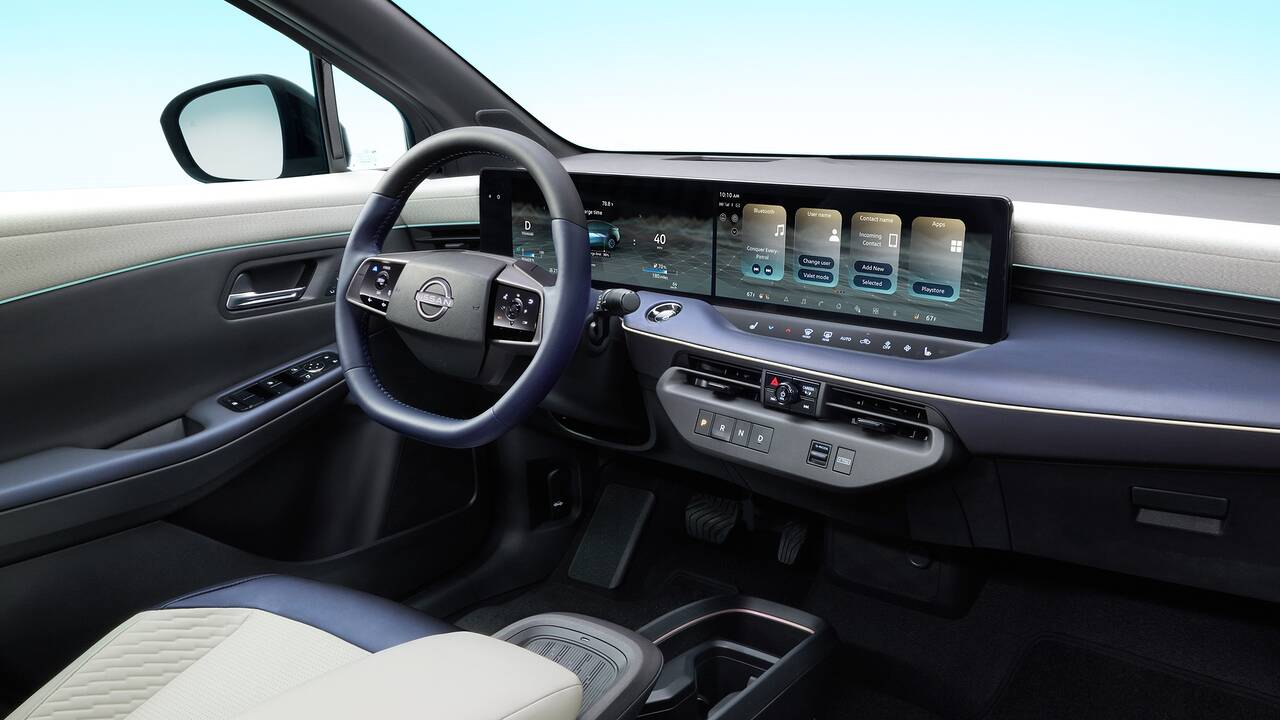
Notably, the dual-motor Ariya with the larger 91-kWh battery also pumps out 389 horsepower, making it easily the quickest configuration on the Leaf/Ariya spectrum, if you're into that sort of thing.
But suppose you don't particularly care about dominating stoplight drag races. You're thinking that the 2026 Leaf S+, with 214 horsepower pulling 4,187 pounds of EV, is probably plenty quick, especially given the instant-on character of electric acceleration. After all, the 2025 Leaf SV Plus — which uses the same 214-hp motor to pull 3,900 pounds — gets to 60 mph in 6.8 seconds, so the worst-case scenario for the 2026 Leaf S+ is a respectable 7.3 seconds or thereabouts. Suppose, too, that you don't see the need for all-wheel drive, whether it's because you live in a warmer climate or you simply trust modern stability-control systems to sort out the slippage, as I do.
That's where this comparison gets interesting, because even though the single-motor, front-drive Ariya Evolve+ ($44,370) is our favorite variant, it's pretty clearly not an upgrade over the 2026 Leaf S+. To wit, it tops out at 289 miles of range — the highest number in the lineup — and the Evolve+ motor's 238-hp output has 4,528 pounds of Ariya to contend with. So, the longest-range Ariya goes 14 fewer miles than the Leaf S+, and while there are 24 additional horses in the stable, you've also got 341 extra pounds for them to manage, which means the acceleration will likely be about the same.
2026 Nissan Leaf S+ vs. 2025 Nissan Ariya Evolve+ FWD
Vehicle Price Range Max Cargo Space Rear Legroom Power Weight Max Charge Rate 2026 Nissan Leaf S+ $38,000 (est.) 303 miles (est.) 55.5 cu ft 31.8 in 214 hp 4,187 lbs 150 kW 2025 Nissan Ariya Evolve+ FWD $44,370 289 miles 59.7 cu ft 37.0 in 238 hp 4,528 lbs 130 kW
What's the TLDR? Comparing the front-drive 2026 Leaf S+ to the front-drive 2025 Ariya Evolve+, the Leaf wins on range, probably ties on acceleration and almost certainly wins big on price, with a projected gap of $6,000 or more. It even has a slightly higher peak charge rate. That doesn't seem like a winning formula for the Ariya, although it does highlight how competitive the Leaf S+ looks to be across the board.
MotorDonkey Says
A lack of product differentiation between segments is hardly a new problem. Thinking about today's new cars, the Toyota Corolla Cross Hybrid jumps out as another subcompact SUV that rivals its bigger brother (the RAV4 Hybrid) in almost every area save for rear legroom.
But surely Nissan would like the Ariya to make a stronger case for itself once the 2026 Leaf hits dealerships. To that end, I wouldn't be shocked if the 2026 Ariya gets a makeover, not only to protect it against the Leaf, but also to boost its standing in the highly competitive compact EV space.
If Nissan leaves it alone, though, I don't like its chances of surviving much longer. With the new Leaf in town, the Ariya will need more than just available AWD and a few extra inches of rear legroom to justify its substantial premium. ⛐ md

by Josh Sadlier
Publisher and Donkey-in-Chief
Josh has been reviewing cars professionally since joining Edmunds.com fresh out of grad school in 2008. Prior to founding MotorDonkey, he spent 15 years shaping Edmunds' expert automotive content in various capacities, starting as an associate editor and ultimately serving as a senior editor before wrapping up with a five-year term as the company's first-ever director of content strategy. Josh is a card-carrying member of the Motor Press Guild and a lifelong car nut who has driven, compared and critiqued thousands of cars in his career. Helping people find their perfect car never gets old—seriously!
 Let's make it official!
Let's make it official!
Be a good donkey and we'll deliver delicious car news straight to your inbox, spam-free forever.
